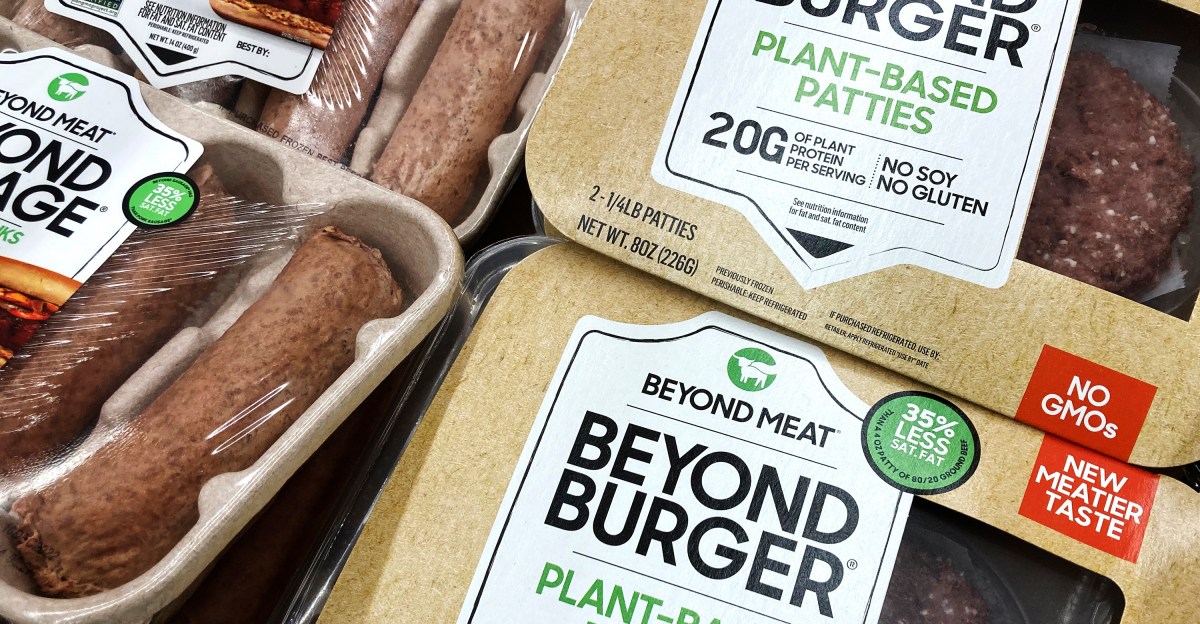- cross-posted to:
- health@lemmy.world
- cross-posted to:
- health@lemmy.world
Things get weirder when you dig into how the study defined “ultra-processed” meat alternatives. Included on that list are tofu and tempeh, soybean-based foods that have been used in East and Southeast Asian cuisines for centuries. They bear little to no resemblance to products like Impossible and Beyond burgers.
That’s just absurd.
And:
But plant-based meats were virtually absent from the study: Just 0.2 percent of calories across the sample came from meat alternatives. The bulk of the plant-based ultra-processed calories instead came from what the authors describe as “industrialised packaged breads, pastries, buns, and cakes,” and “biscuits,” better known in the US as cookies — foods that have little to do with plant-based meats or other specialty vegan products.
Not a vegan but do eat tofu and how the hell is that ultra-processed. Seitan I’ve had but am less familiar with (it’s not seen here in rural Japan and also it turns out my body hates gluten so it’s off the menu) but I don’t recall the process of making it being that … “Ultra”
We make seitan at home, it’s the same steps as making homemade bread but boiled in flavor instead of baked. They’d probably put homemade bread on the list, too, though.
Yeah, I make my own sausages every now and then. I usually only make enough for that week, but they last in the freezer maybe a month. I’m sure they’d be on the list too.
I’m not sure about the definition, but Tofu could certainly qualify as heavily processed, if not ultra processed. Remember, this has nothing to do with industrial scale or the “healthiness” , but with the number and degree of steps needed to go from raw material to foodstuff.
Seitan has also been eaten in China for centuries
Thanks for this article. I’ve heard of people throwing around this word like a gotcha to discredit anything related to veganism. Finally, I know what it actually means.
Man, meat-eaters turning into culinary experts and dietitians whenever veganism is brought up is such a joke. Even if Beyond meat were unhealthy, who cares. Most vegans that eat these only rarely do because there are so many other things to eat that are more delicious, more nutritious, and cheaper. Even if they were as unhealthy as meat, meat-eaters would be affected by its unhealthiness a lot more given daily consumption.
I feel like meat substitutes are, most of the time, targeted towards “adventurous” meat-eaters who feel like brave trailblazers whenever they try something vegan. Not that I don’t like them from time to time, but I just can’t afford them on the regular.
Frankly im fairly convinced if you simply replaced meat in your diet 1:1 with impossible meat you would overall be healthier for the majority of the population, especially if you compensated for the two areas that impossible is nutritionally inferior to beef (slightly higher carbohydrate content with 9g vs 0 and significantly higher sodium content with 370mg vs 65mg)
Otherwise the key benefits of meat impossible is comparable to 80/20 ground beef (2g decrease in protein per serving), most other aspects are comparable with slight benefits to impossible, and in some cases impossible is notably superior (5g of fiber vs 0, 0mg of cholesterol vs 60mg, significantly more nutrient rich)
And this is for the traditional impossible, the lite version cuts the calories, fat, sodium significantly while bumping the protein up 2mg to the same level as the 80/20 ground (although imo this is not as flavorful and has a less pleasant texture)
Beyond is less healthy but not terribly so
And with both reading articles on them is such a pain because often the articles are written from years ago. Beyond and impossible both have refined the formulation of their recipes, impossible several times, and the nutritional values have improved notably in that time frame. But the articles about “how does impossible compare to the whopper” or “how does beyond stack up to ground beef nutritionally” all are from the original formulations
Whether it’s safe to eat them constantly long term is up for some debate, maybe, but realistically you’re probably fine. There’s nothing terrifying in there and the only thing somewhat novel in it is the soy leghemoglobin, although to be fair there may be some concerns there. Also depending on how strict of a vegan you are you shouldn’t eat impossible because their development of soy leghemoglobin (which they call “heme”) utilized rat feeding studies to fast track the safety part so technically it is not entirely cruelty free
Yeah they’re a treat, it’s not an every day meal
Oh no, I wonder which huge industry would spend their subsidized income on pushing such stories?
I’m beginning to think there actually is a right-wing, anti-vegan, pro-factory-farming, pro-meat cabal at work here. The kind of people Elon Musk would happily fund.
Thank you for posting this.
I gotta admit that I started avoiding the frozen vegan stuff after reading a few articles about this very thing in the NYTimes. Instead I’ve been leaning into the more unprocessed ingredients to make my food at home which isn’t really a bad thing I guess








